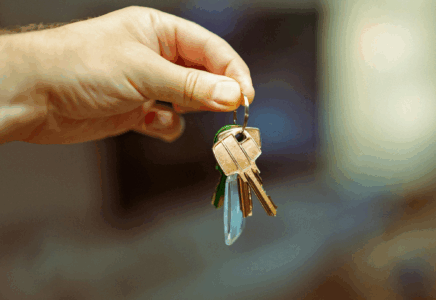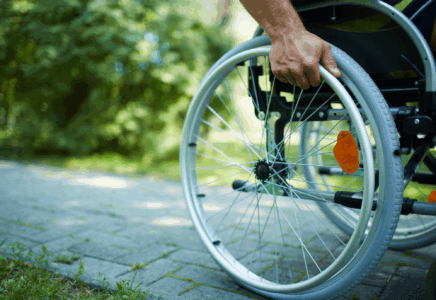Buying an investment property can be a smart long-term strategy – if you go in prepared. In Victoria, residential rental properties must meet strict minimum standards before they can be leased. These rules are designed to ensure properties are safe, functional, and comfortable for renters, but they also impact your up-front costs and ongoing obligations as a landlord. Keep in mind, they must be met before:
- the property is listed as a rental
- a current rental agreement is renewed
- when a rental agreement becomes periodic (month by month)
Understanding these requirements early can help you choose the right property, avoid unexpected costs and stay compliant with Victorian rental laws.
Check whether the property meets current rental minimum standards
All rental properties in Victoria must meet the minimum standards across 14 categories:
- Bathrooms
- Electrical safety
- Heating
- Kitchen
- Laundry
- Lighting
- Locks
- Mould and damp
- Structural soundness
- Toilets
- Ventilation
- Vermin proof bins
- Window coverings
- Windows
If a property doesn’t meet these standards, you must upgrade it before renting it out.
1. Bathrooms
The bathroom must have a washbasin and a shower or bath and be connected to a reasonable supply of hot and cold water. Showers must have a shower head with a 3-star water efficiency rating. If one cannot be installed, for example because of the property’s age, then a shower head with a 1- or 2-star rating is acceptable.
2. Electrical safety
Rental properties must have modern switchboards, with circuit breakers and electrical safety switches installed. Electrical safety switches are known as residual current devices (RCD, RCCB or RCBO).
If the rental property does not have a circuit breaker type switchboard:
The rented premises can meet the minimum standard if the electrician adds circuit breaker components to the power outlets and lighting circuits, without the need to add to or modify the circuit protection to other circuits (such as fixed cooking equipment, hot water units or air-conditioning circuits).
The circuit breaker components include:
- an overcurrent circuit breaker and a residual current device (RCDs), or
- an overcurrent circuit breaker and a residual current operated circuit-breakers without integral overcurrent protection (RCCBs), or
- a residual current operated circuit-breaker with integral overcurrent protection (RCBOs).
Landlords are responsible for engaging an electrician to ensure their rental property complies with the electrical safety standard.
3. Heating
All rental properties must have a fixed heater (not portable) in good working order in the main living area.
For rental agreements entered into from 29 March 2023, this must be an energy efficient fixed heater in the main living area. If there is an existing fixed heater that is not energy efficient, the rental provider must upgrade it.
An energy efficient fixed heater must be one of the following:
- a non-ducted air conditioner or heat pump with a 2 star or above energy rating
- a gas space heater with a 2 star or above energy rating
- a ducted heating or hydronic heating system with an outlet in the main living area
- a domestic solid fuel burning appliance, such as a fireplace or wood burning stove
4. Kitchen
The property must have a kitchen with:
- a dedicated cooking and food preparation area
- a sink in good working order connected to a reasonable supply of hot and cold water
- a stovetop in good working order that has two or more burners.
If there is an oven, it needs to be in good working order.
These requirements do not apply if the property is listed in the heritage register at Heritage Council Victoria and has an approved exemption from the standard.
5. Laundry
If there is a laundry on the property, it must be connected to a reasonable supply of hot and cold water.
6. Lighting
Inside rooms, corridors and hallways must have access to light to make the areas functional. During the day, natural light can include light borrowed from an adjoining room. At night, renters should have access to artificial light.
These requirements do not apply if the property is registered under the Heritage Act 2017 and has an approved exemption from the standard.
7. Locks
The property’s external entry doors must have functioning deadlocks (a ‘deadlock’ is defined as a deadlatch with at least one cylinder) or be fitted with locks that can be unlocked with a key from the outside but can be unlocked without one from the inside.
The only cases where a deadlock doesn’t have to be fitted to a door are when:
- A door cannot be secured with a deadlock - for example, because of its position
- It is a screen door in the same door frame as an external door
- A different type of lock or device is required under another Act or law
- The door is not accessible because there is another type of security barrier. For example, a locked door to an apartment building, or a locked gate
- The property is registered under the Heritage Act 2017 and has an approved exemption from the standard.
8. Mould and damp
All rooms must be free from mould and damp caused by or related to the building structure.
9. Structural soundness
The property must be structurally sound and weatherproof.
10. Toilets
The property’s toilet must be in good working order and connected to either:
- Pipes that carry the sewage to a treatment plant (a reticulated sewerage system)
- A wastewater treatment system permitted under the Code of practice – Onsite wastewater management at EPA Victoria
- Any other system approved by the local council.
The toilet must be in a separate room in the property, either by itself, or in an appropriate room like a bathroom or in a combined bathroom-laundry.
11. Ventilation
Rental properties must have adequate ventilation in all habitable rooms including the bathroom, shower, toilet and laundry.
The property must meet the appropriate ventilation requirements of the Building Code of Australia, which are different for different kinds of properties. You can search resources in the Australian Building Codes Board resources library.
12. Vermin-proof bins
Rental providers must supply a rubbish bin and a recycling bin for the renter to use.
The bins can be provided by the local council or purchased elsewhere, as long as they are vermin (for example, rats and mice) proof and meet council collection standards.
13. Window coverings
Windows in rooms likely to be used as bedrooms or living areas must be fitted with curtains or blinds that can be closed, block light and provide privacy. Make them safer by installing a curtain and blind safety kit.
14. Windows
All external windows in the rented premises which are capable of opening must have a functioning latch to secure the windows against external entry.
Openable windows must also be able to be left in the open or closed position.
Click here to download a checklist from Consumer Affairs Victoria
Get legal advice before you buy
Before signing a contract, seek advice from an experienced property lawyer or conveyancer. They can help:
- Review the contract of sale
- Identify compliance issues
- Clarify your legal obligations as a rental provider
- Assess risks associated with older homes or strata properties
At Maddens Lawyers, our property and conveyancing team can guide you through your purchase and ensure your investment is protected.
Thinking about buying an investment property?
Buying an investment property in Victoria requires more than just choosing a property in a strong rental market—you also need to understand and meet your legal responsibilities as a rental provider.
Our team at Maddens Lawyers can help you navigate the process, assess compliance risks and ensure your new investment is ready for tenants.
Contact our property and conveyancing team on 1800 815 228 or visit www.maddenslawyers.com.au










